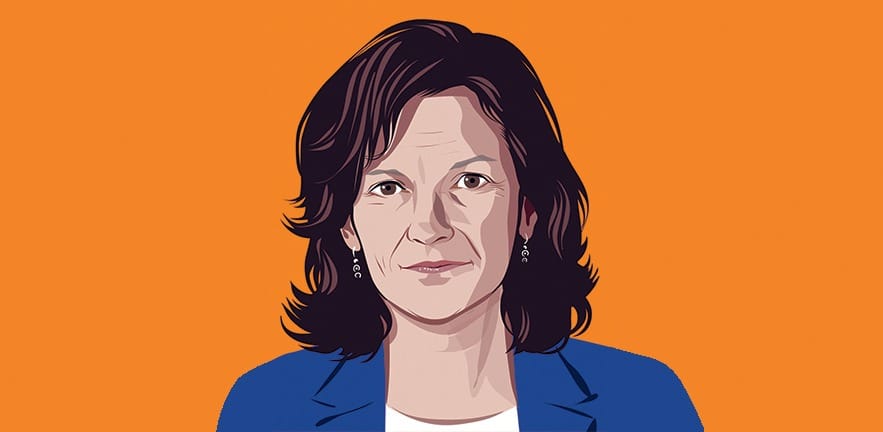Claire Clarke is managing partner of Mills & Reeve. Her vision for 2016 is to “take things up a gear”.

The legal sector is facing distinct challenges – not least, changing technology, increasing commoditisation and new entrants to the market. And as managing partner, I have been looking at what that means for my firm and for the marketplace.
I think a lot of people can draft a legal agreement. Where a firm differentiates itself is the commercial and solution-focused advice it can give. You need to have a real understanding of your client’s business and sector and where it’s going – know what the up and coming issues are and how the client should be adapting or organising themselves to address them. And we need people who can listen and empathise with clients to understand what they need and develop relationships.
One good example is the education sector: it’s a constantly changing landscape and the law is adapting – there are pressures, for instance, in terms of the effects of immigration legislation, or the increasing consumerism of students. Increasingly education clients are operating in a more commercial space and not only need specialist legal advice but also many of the tools large businesses need as well.
These changes make for interesting, challenging work. We’ve recently helped the Institute of Education merge with University College London, and we’ve helped 18 colleges of the University of Cambridge create a first-of-its-kind finance deal, raising £150m worth of finance from institutional investors. That was really innovative work, and we’ve also been busy in our other key sectors as well. Our lawyers enjoy sharing knowledge and spark ideas off each other.
We are routinely looking beyond our borders. More and more of our clients are operating globally and about 20 per cent of our business is international. We want to develop these networks further; it is another area of growth and opportunity for us. We form close alliances with firms when we really understand each other, and where we feel confident enough to do joint pitches and marketing.
I feel I’ve got to where I am now with a bit of luck and a lot of hard work; my main challenge is keeping all the plates spinning. I enjoy the legal work so it hasn’t felt a struggle. I’m determined to give myself time to think strategically; I make sure I keep my head up from the desk, to see what’s going on around me in the legal profession, but also continue to talk to clients and contacts about what’s going on in their businesses. I will continue to do some client-facing work – it’s important to remain connected.
So in 2016, I will be pushing the firm on and up. I think there are opportunities around the sectors where we have particular expertise: education, health, private wealth and insurance. We’ll continue to offer clients what they want in terms of deep knowledge of their sectors. But I think we’ll want to be a little speedier to grab opportunities, respond and adapt to change.

